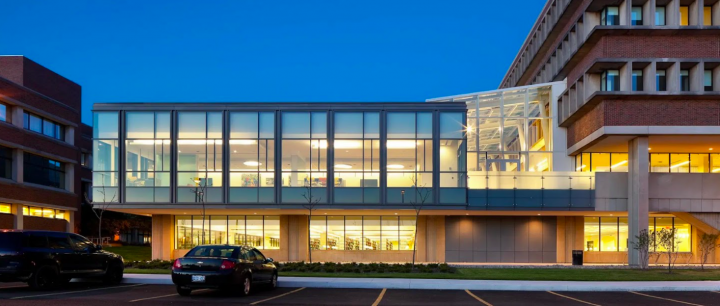
| A collective of concerned students lets their voices be heard on the matter of our return to campus |
Editor’s Note: This letter was drafted collectively by members of the Osgoode Hall Law Union, Disability Collective of Osgoode, and the Osgoode Mature Students Association.
We are a collective of Osgoode Hall Law School students with significant concerns about York University and Osgoode’s (“Administration”) return to campus plan and in-person learning requirements starting February 7, 2022.
The return to campus plan needlessly endangers students, faculty, staff, and their communities. We are alarmed that the Administration is mandating in-person learning at a time when COVID-related hospitalizations and deaths in Ontario have significantly increased. At the town hall on January 21, 2022, York administration expressly acknowledged that social distancing will not be possible on campus, and conceded that there will be positive cases of COVID in classrooms. In-person learning will increase community transmission and cause many students to get sick, with immunocompromised students and students with disabilities bearing the highest risk.
The pandemic continues to disproportionately impact marginalized communities along disability, race, class, and other lines. While a mandatory return to in-person classes poses risks to all students, safety and learning challenges are exacerbated for students from equity-seeking groups. We are concerned this inflexible decision has been made without sufficient consultation with students and is dismissive of the diverse lived realities of students.
We demand a learning model that prioritizes and centres the diverse needs of disabled, mature, racialized, and low-income students who have been disproportionately impacted by the pandemic, and are being endangered, marginalized, and excluded by the current return plan.
We urge the Administration to adopt the following measures for the Winter 2022 semester:
- Students should have the option to participate synchronously and remotely in all courses. In addition, all lectures and seminars should be recorded, with recordings made available in a timely manner. Students should be continuously consulted and included in decision-making processes where learning or evaluation models must be modified in light of any pandemic-related changes.
- Final exams must be offered with remote and take-home options to meet students’ learning needs and ensure that students do not contract or transmit COVID while writing exams.
- Accommodations should be granted to students without penalty, and without an onerous request process. While Osgoode claims to offer accommodations to students who are unable to attend campus due to their disabilities or medical conditions, in reality, very few students have been able to access these accommodations. Remote accommodations must be accessible without requiring updated medical documentation and Administration should ensure that there are note takers for each course. It is deeply ableist that rather than providing the necessary accommodations, the Osgoode administration has suggested that students should consider taking a leave of absence if they are not able to attend in-person classes or exams.
- York University must provide accessible rapid tests and a supply of N95 masks for students, faculty, and staff who are on campus and at clinics. Where classes are in-person, the administration must ensure assigned classrooms are large enough for students, faculty, and staff to observe social distancing of at least 2 metres.
Equity Concerns Should be at the Forefront of a Learning Model During COVID
Students who have disabilities, caregiving needs, and who are low-income are being severely burdened by the Administration’s mandated return to class in-person.
- Students with disabilities are frequently at a higher risk of infection, severe acute illness, long-term symptoms and death from COVID. The current accommodations process has left many students with disabilities overburdened with onerous documentation requirements, and have left many disabled students without access to necessary accommodations at all. Students have also received delayed and conflicting instructions between York University Student Accessibility Services and Osgoode, further complicating the accommodations process.
- Students who are caregivers for children, elderly and/or sick family members face pandemic-related challenges that can arise and change suddenly, and that can result in them being unable to attend campus in-person. As a consequence of ongoing COVID infections, parents face difficulties in securing reliable and consistent childcare. Students caring for ill, elderly or disabled family members may similarly struggle to find alternate in-home support. These challenges are exacerbated when a child or vulnerable family member contracts COVID and requires additional care.
- Students living in multigenerational households risk bringing COVID from York campus back to their family members, who may be elderly, immunocompromised and/or unable to get vaccinated.
- International students and students who live outside of the GTA will be forced to relocate and secure accommodations on short notice in light of ongoing uncertainty.
- Commuter students who use public transit for various reasons, including affordability, will be at a higher risk of contracting and spreading COVID due to overcrowded transit spaces.

An intersectional approach recognizes that many students experience these challenges simultaneously, which is further shaped by race, gender, and class. We demand an equitable learning model that addresses all these challenges.
A safe and equitable learning environment requires that the needs of all students are met, and that students from equity-seeking groups are not left behind.
The pandemic has shown us how interconnected our safety is. We all have a responsibility to take care of this community—to take collective action and ensure that everyone is safe.
